Education
Nigeria Records Worst WASSCE Performance in a Decade

According to findings from iReporter Online, the performance of Nigerian students in the 2025 West African Senior School Certificate Examination (WASSCE) has plunged to its lowest point in ten years, raising urgent calls for sweeping education reforms.
Data presented on Monday in Lagos revealed that only 38.32 percent of candidates secured five credits and above, including English Language and Mathematics— a dramatic drop from the 72.12 percent pass rate recorded in 2024. This downturn marks the sharpest single-year decline in the past decade.
Out of 1,969,313 candidates who took the exam in 23,554 schools nationwide, just 754,545 met the minimum benchmark. The last time Nigeria posted similarly dismal results was in 2014, when only 31.28 percent of candidates passed with credits in five core subjects.
Historical analysis shows varying performance trends over the years. In 2016, 52.97 percent of candidates met the standard, followed by 59.22 percent in 2017 and a drop to 50 percent in 2018. The scores rebounded to 64.18 percent in 2019 and peaked at 81.7 percent in 2021 before beginning a gradual decline.
While announcing the results, Amos Dangut, Head of the Nigeria Office of the West African Examinations Council (WAEC), attributed the significant drop to a new anti-malpractice strategy. The Council recently implemented a serialization system for objective test papers in key subjects such as Mathematics, English, Biology, and Economics to curb collusion.
“This approach has substantially reduced examination malpractices,” Dangut stated, adding that while essay paper scores remained consistent with previous years, objective test results showed a notable decline. “It is a clear indication that candidates must now depend solely on their own academic preparation,” he concluded.
The dismal performance has stirred concern among education stakeholders and professionals. Educationist Titus Ugboma noted the unchecked proliferation of private schools and employment of unqualified teachers as a key challenge. “Many schools operate without adequate libraries or science laboratories. In several institutions, even English and Mathematics are taught by individuals with mere O’level certificates or ONDs,” he lamented.
Joy Umana, a secondary school teacher in Onitsha, pointed to a widespread lack of seriousness among both students and authorities. “Some candidates no longer study. They are more interested in paying for assistance during exams. Meanwhile, ‘miracle’ centres are known but still allowed to operate,” she alleged.
She also highlighted the chronic shortage of educational facilities and competent personnel as significant barriers to academic excellence.
Similarly, education analyst Kayode Abimbola called on the government to strengthen regulatory checks for private school approval and invest in public school systems. “Only qualified institutions should be licensed. Government schools also require proper funding and trained teachers, especially in core subjects. The rot is systemic—both public and private institutions are failing,” he stressed.
The 2025 WASSCE results have reignited debate over the quality and integrity of Nigeria’s education system, with experts urging immediate reforms to reverse the troubling trend.
-
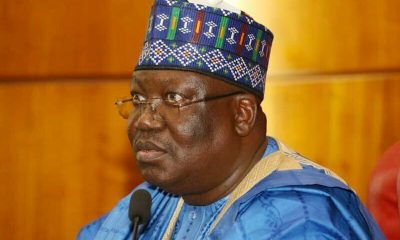
 Latest News3 days ago
Latest News3 days ago“Tinubu Is Open To All Nigerians — Ahmed Lawan Fires Back At Critics”
-
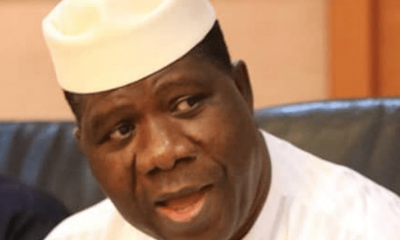
 Latest News1 week ago
Latest News1 week ago“I Owe No One An Apology” – Senate Leader Bamidele Declares Unshakable Loyalty To Governor Oyebanji
-

 Latest News2 weeks ago
Latest News2 weeks agoAPC Sweeps All 25 Niger LG Seats In Landslide Victory
-

 Latest News1 week ago
Latest News1 week agoEFCC Restores Hope: 70-Year-Old Widow Reclaims ₦42.5 Million Stolen By Banker
-

 Latest News2 weeks ago
Latest News2 weeks agoFuel Prices Crash Again As Dangote, BOVAS, AA Rano Lead Fresh Market Adjustments
-
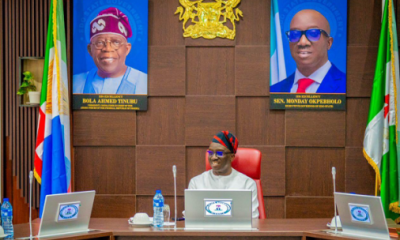
 Latest News2 weeks ago
Latest News2 weeks agoOkpebholo Reclaims MOWAA Land To Rebuild Edo General Hospital
-
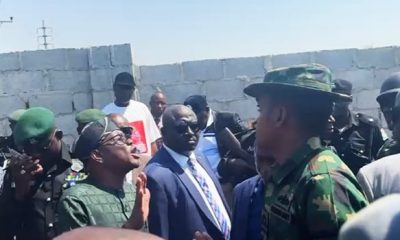
 Latest News5 days ago
Latest News5 days agoDefence Headquarters Responds Hours After Wike’s Heated Clash With Military Officers
-

 Latest News1 week ago
Latest News1 week agoRegina Daniels Begs Ex: “Please Don’t Release My S3x Tape” — Actress Vows Legal Fight
-
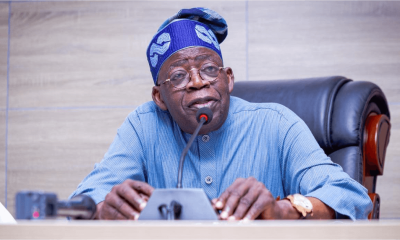
 Latest News2 weeks ago
Latest News2 weeks agoBreaking: Tinubu Nominates Kingsley Ude As New Minister To Replace Uche Nnaji
-
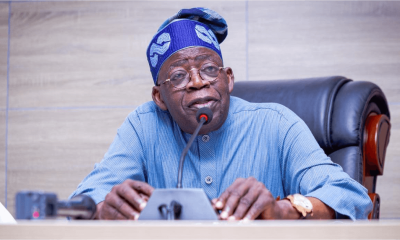
 Latest News2 weeks ago
Latest News2 weeks agoTinubu Set To Restore Nigeria’s Global Voice As Fresh Ambassadorial Appointments Loom
-
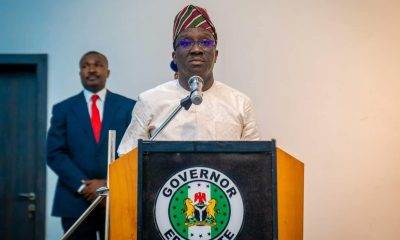
 Latest News3 days ago
Latest News3 days agoOkpebholo Drops The Hammer: Two Edo Monarchs Dethroned Amid Rising Tensions
-

 Latest News2 weeks ago
Latest News2 weeks agoBreaking Barriers: Meet The Nigerian Coaches Making Waves Across The World



